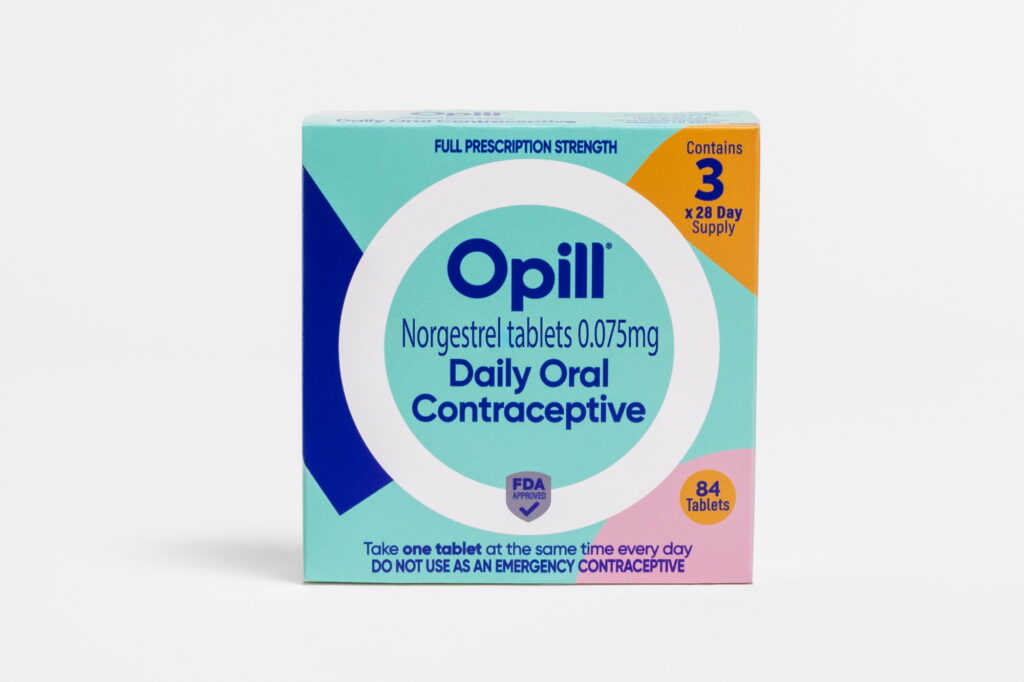Post-Roe America: How OTC Birth Control Reshapes Family Planning

Table of Contents
Increased Access and Affordability of Birth Control
The transition to OTC birth control offers a powerful tool for improving access to contraception, particularly for those historically marginalized. For low-income individuals and those in underserved communities, the cost of prescription birth control and the associated doctor's visits have often presented insurmountable barriers. OTC birth control dramatically reduces these obstacles.
- Lower out-of-pocket expenses: Eliminating the need for a prescription significantly reduces the financial burden, making birth control accessible to a broader population.
- Increased accessibility in rural areas: Many rural areas lack sufficient healthcare providers, making accessing prescription birth control difficult. OTC options bypass this hurdle, bringing essential reproductive healthcare to underserved communities.
- Potential reduction in unintended pregnancies: Improved access directly translates to a potential decrease in unintended pregnancies, a significant factor influencing reproductive health outcomes.
- Strategic partnerships: Collaborations between pharmacies, community health centers, and public health organizations can further expand access to OTC birth control, ensuring its reach extends to those who need it most. These partnerships can offer education, counseling, and support alongside the physical provision of the contraceptive itself.
Impact on Family Planning Decisions
Easier access to birth control empowers individuals to make informed choices about their reproductive lives and family planning. This increased control has significant implications for birth rates and societal trends.
- Greater control over reproductive health: Individuals can better align their family planning with their personal goals, educational aspirations, and career paths.
- Potential for decreased reliance on abortion: By providing a readily accessible and affordable alternative, OTC birth control can reduce the number of individuals who resort to abortion as a method of family planning.
- Increased ability to space pregnancies: The convenience and affordability of OTC birth control allows for better spacing of pregnancies, promoting healthier outcomes for both parents and children.
- Improved alignment of personal goals: Individuals can better plan their pregnancies to coincide with life stages where they feel best equipped to raise a child, thus improving overall wellbeing and family stability.
Potential Challenges and Concerns
While the benefits of OTC birth control are significant, addressing potential challenges is crucial for responsible implementation.
- Misinformation and improper use: Without proper education, individuals may misuse OTC birth control, leading to reduced effectiveness and unintended pregnancies.
- Potential for increased reliance on less effective methods: The increased availability of OTC methods might lead some individuals to opt for less effective options if they lack knowledge of more suitable alternatives.
- Lack of comprehensive sex education: Comprehensive sex education is paramount to ensure individuals understand the various contraceptive options, their effectiveness, and potential side effects.
- Increased risk of STIs: Increased sexual activity without concurrent increases in safe sex practices and access to STI testing and treatment may lead to a rise in sexually transmitted infections.
- Need for robust public health campaigns: Targeted public health campaigns are essential to promote responsible contraceptive use, dispel misinformation, and encourage safe sexual practices.
The Role of Education and Public Health Initiatives
Maximizing the benefits of OTC birth control requires comprehensive sex education and robust public health initiatives.
- Accessible information: Readily available information on various contraceptive methods, their effectiveness, and potential side effects is crucial. This information should be presented in multiple formats to reach diverse audiences.
- Government funding for public health programs: Significant investment in public health programs is necessary to support education and outreach efforts nationwide.
- Community-based programs: Local initiatives can offer counseling and support, tailoring information to specific community needs and addressing cultural sensitivities.
- Healthcare provider guidance: Healthcare providers play a crucial role in guiding individuals toward appropriate contraceptive choices, answering questions, and addressing concerns.
Rethinking Family Planning in Post-Roe America with Over-the-Counter Birth Control
The increased availability of over-the-counter birth control presents a significant development in the post-Roe landscape. While offering increased access and affordability, it also necessitates proactive measures to mitigate potential challenges. Comprehensive sex education, robust public health campaigns, and strategic partnerships are essential to ensure that OTC birth control empowers individuals to make informed choices and promotes better reproductive health outcomes. Learn more about your options for over-the-counter birth control and contribute to the ongoing conversation about reproductive healthcare access in a post-Roe America.

Featured Posts
-
 Breakout Season Prediction A Red Sox Sleeper Set To Emerge
Apr 28, 2025
Breakout Season Prediction A Red Sox Sleeper Set To Emerge
Apr 28, 2025 -
 Decoding The Luigi Mangione Supporters Platform
Apr 28, 2025
Decoding The Luigi Mangione Supporters Platform
Apr 28, 2025 -
 Is Espn Right Analyzing Their Red Sox 2025 Prediction
Apr 28, 2025
Is Espn Right Analyzing Their Red Sox 2025 Prediction
Apr 28, 2025 -
 Why Are Gpu Prices Out Of Control Again A Deep Dive
Apr 28, 2025
Why Are Gpu Prices Out Of Control Again A Deep Dive
Apr 28, 2025 -
 Trumps Time Interview Key Insights On Canada China Relations And Presidential Term Limits
Apr 28, 2025
Trumps Time Interview Key Insights On Canada China Relations And Presidential Term Limits
Apr 28, 2025
